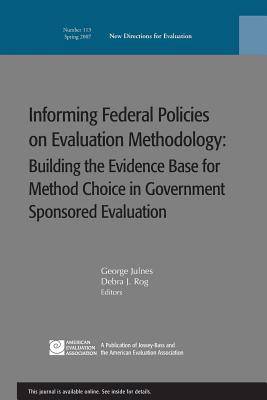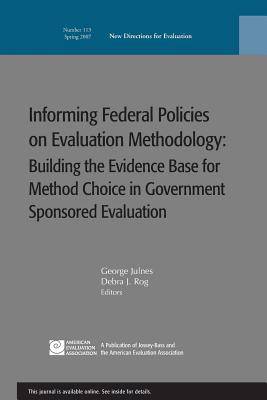
- Retrait gratuit dans votre magasin Club
- 7.000.000 titres dans notre catalogue
- Payer en toute sécurité
- Toujours un magasin près de chez vous
- Retrait gratuit dans votre magasin Club
- 7.000.0000 titres dans notre catalogue
- Payer en toute sécurité
- Toujours un magasin près de chez vous
Description
This volume provides a space for a productive dialogue that, by identifying areas of agreement but also fundamental differences, will promote a more durable working consensus on the circumstances in which some methods are to be preferred over others. The chapter authors and discussants make clear that there are different types of evidence with which to inform this dialogue, including empirical findings of the impact of method choice on evaluation outcomes, the evidence contained in the wisdom of practice, and the results of critical analyses of the broader social impacts of method choice. The editors build on these contributions to suggest pragmatic policies for federal agencies, promoting both context-appropriate method choice and the importance of managing portfolios of evaluative research that maintain desired distributions of methodologies.
This is the 113th volume of the Jossey-Bass quarterly report series New Directions for Evaluation, a publication of Jossey-Bass and the American Evaluation Association.
Spécifications
Parties prenantes
- Auteur(s) :
- Editeur:
Contenu
- Nombre de pages :
- 154
- Langue:
- Anglais
- Collection :
- Tome:
- n° 113
Caractéristiques
- EAN:
- 9780787997342
- Date de parution :
- 01-04-07
- Format:
- Livre broché
- Format numérique:
- Trade paperback (VS)
- Dimensions :
- 157 mm x 227 mm
- Poids :
- 226 g







